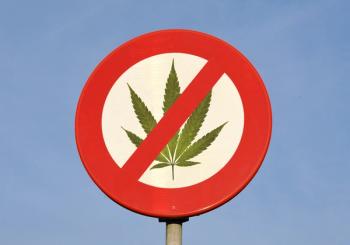
Cannabis for Harm Reduction: Recommendations for Future Policies
The final installment of this webinar series discussed recommendations for new policies integrating cannabis into harm reduction efforts.
On May 23, 2024, the
The first part of the webinar provided a summary of results from the 2023 CCOE survey “Cannabis as an Alternative Therapy,” which asked participants about their substance use and cannabis use and interest. Dr. McNabb then explained the current efforts the alleviate the opioid epidemic in Massachusetts and how cannabis can be a tool in these efforts. She stated, “I think this is a great opportunity to start to really destigmatize the role that cannabis can play. And as a result, we have developed some policy recommendations.”
For the second part of the webinar, the presenters provided detailed input and wide-ranging perspectives on these policy recommendations. For the first two policies, recurring themes discussed included the need for data-based decisions, for finding common ground, and for educating all healthcare providers regardless of their views on cannabis. The presenters also shared how they have seen cannabis policies change for better and worse over the past years.
When examining the possibility of donation programs (policy 3), Dr. Grinspoon stated, “I think it really helps people suffering from different addictions, not just opioid addiction, but from alcohol addiction. I think donations are a really good idea. There's no reason not to do them. Medical cannabis can't be another treatment just for the well-to-do; it has to be available to everyone. Poverty is a real risk factor for addiction, but you don't have to be poor to be addicted.” Both presenters agreed that health insurance should cover medical cannabis. DeAngelo described the medical donation programs from the first years that Harborside Health Center, opened in California in 2006, and how policies have changed in less beneficial ways. He stated, “Whatever Massachusetts decides to do with this program on a public policy, learn from California—make it as least restrictive as possible. Don't worry about diversion, worry about access. Because for every day you don't have a program like this in the state, there are people turning to Valium and Percocet and there are people that are perhaps overdosing.”
For research projects to gauge the cost savings assessment and potential of cannabis as a harm reduction tool (policies 4 and 5), DeAngelo stated, “cannabis is a powerful harm reduction tool. It is going to save lives and is going to save money for the state and for insurance companies and for the feds and for the healthcare system overall. You're talking about a medicine that somebody can grow on their balcony, if need be, or hopefully access in not too difficult a way. So when we have data that supports this really powerful harm reduction tool, then it can be used more widely as a harm reduction tool and some of that data can be then used to develop the consensus we need.”
The presenters also discussed the potential effects of cannabis as a Schedule III drug rather than a Schedule I drug. Both Dr. Grinspoon and DeAngelo agreed that descheduling rather than rescheduling would be more beneficial. Rescheduling, DeAngelo noted, would “create a lot more access and a faster road to consensus.” Dr. Grinspoon explained that while rescheduling is a step in the right direction, he questioned how it would help medical cannabis patients be better able to access their medicine. Dr. McNabb shared
In offering one last piece of advice for the policymakers, DeAngelo explained how policies should be integrated at both state and local levels. Dr. Grinspoon stated, “cannabis as a harm reduction tool is really the humane and compassionate thing to do…no matter what, it's going to be an essential component of how we treat a whole range of addictions. We just don't know exactly how to best use it.”
Read a summary of the first episode for a
Newsletter
Unlock the latest breakthroughs in cannabis science—subscribe now to get expert insights, research, and industry updates delivered to your inbox.





